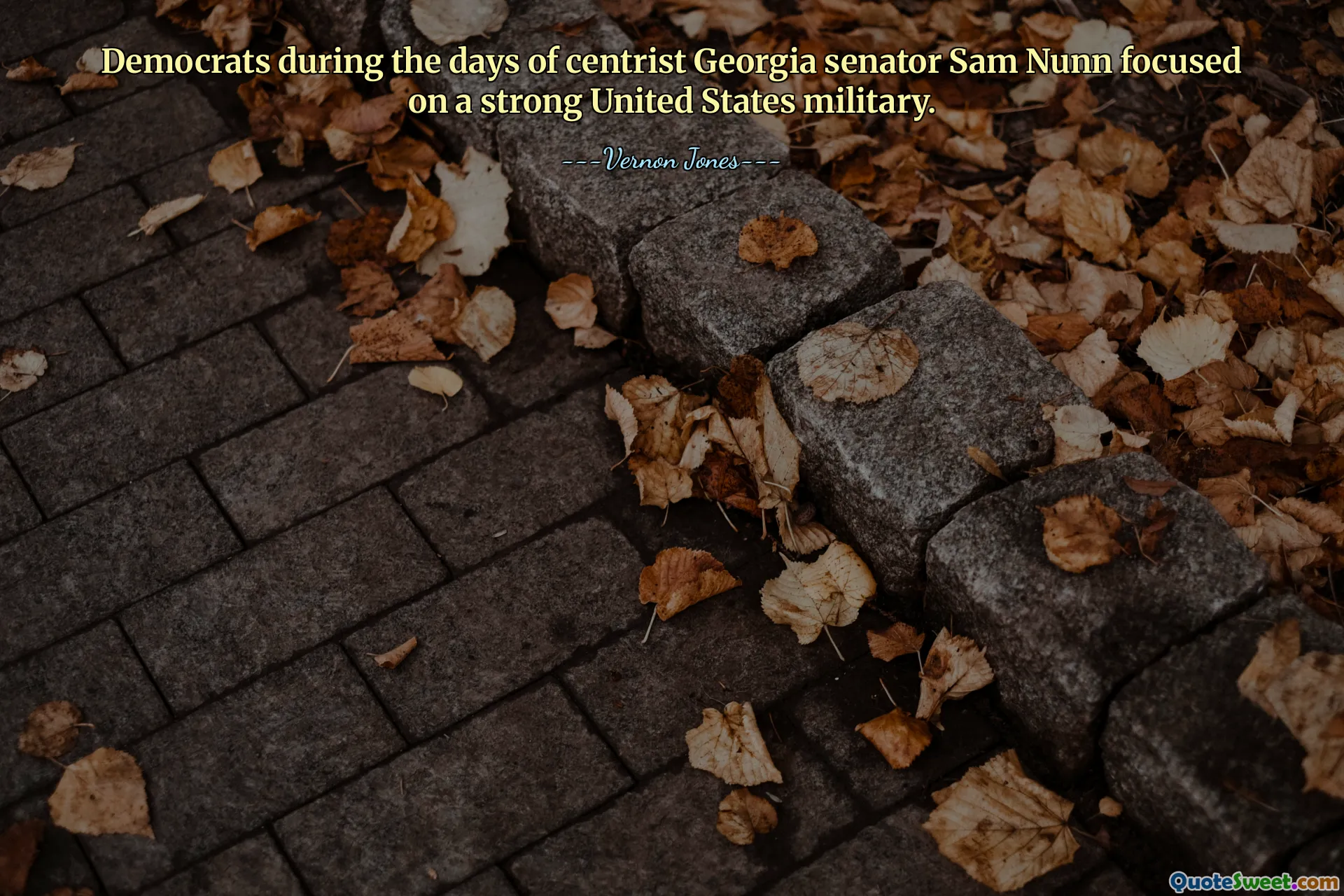
Democrats during the days of centrist Georgia senator Sam Nunn focused on a strong United States military.
The quote highlights a period in American political history when Democrats emphasized national security and military strength, especially under the leadership or influence of contemporaries like Senator Sam Nunn. This emphasis challenges some modern perceptions that political parties are static in their values; it reveals that party priorities can shift over time based on geopolitical contexts, leadership, and societal needs. During Nunn's era, national defense was a unifying issue that transcended party lines, emphasizing collective security amidst the Cold War tensions. Understanding this distinction is vital because it demonstrates that political labels do not always predict policies or priorities, but historical contexts heavily influence these decisions. The focus on maintaining a robust military also reflects a broader strategy of deterrence and international influence that many leaders viewed as essential for the nation's security and prosperity. Moreover, the bipartisan consensus on defense issues underscores national unity—an important reminder during times of division. Analyzing such historical points enables us to recognize the fluidity of political stances and the importance of leadership in shaping party policies. It also encourages current policymakers and voters to consider how ideological priorities evolve, emphasizing the need for adaptable and pragmatic approaches to governance that can respond to changing global threats and domestic needs.











